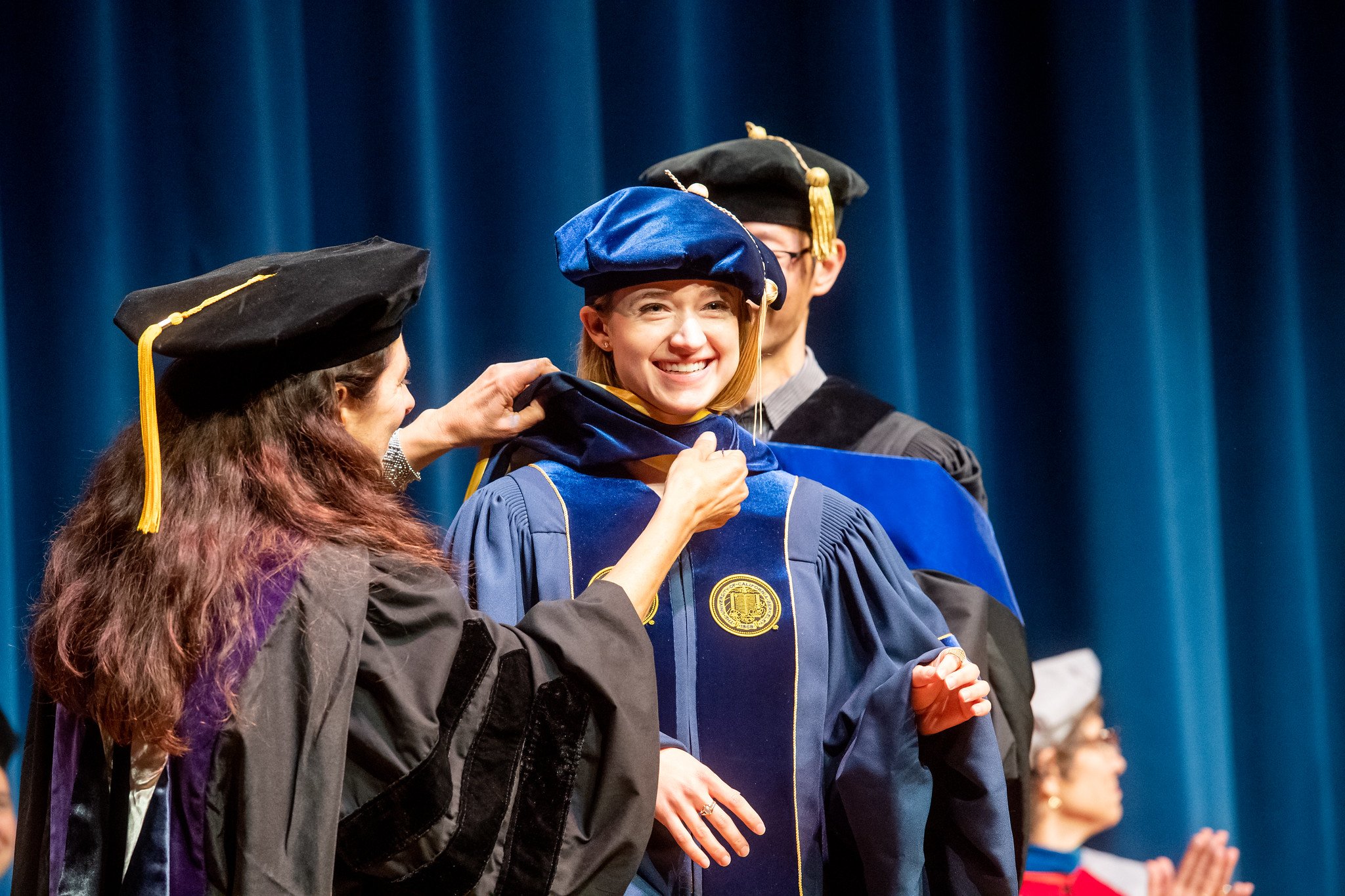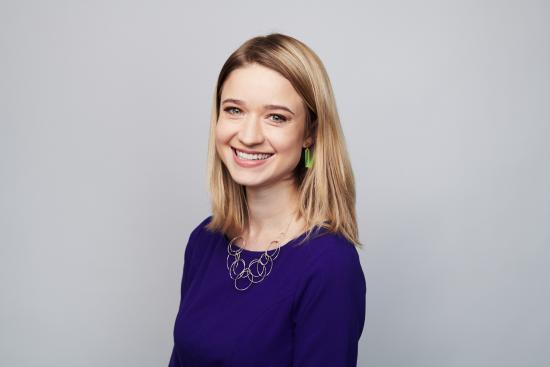Published December 18, 2020
Just over 20 years ago, the School of Information launched its doctoral program, offering a Ph.D. in Information Management and Systems. We now have over 50 Ph.D. alumni, and their paths are varied: they are academics and researchers, or they might work in data science and engineering. Many, like alumna Elaine Sedenberg (Ph.D. ’19), were looking for an interdisciplinary program and found a home at the I School.

Beyond Academia
“I was a biochem major as an undergrad at the University of Texas at Austin,” Sedenberg said. “I loved math and science. When I graduated, I went to work in Washington DC and was bitten by the policy bug. I knew if I wanted to go further I needed to go to grad school, but I wanted a program that combined research with an empirical approach: the I School nailed it.”
Because of the interdisciplinary nature of the I School, she said, its graduates had careers open to them outside of academia. This appealed to her. “The I School embraced topics that were looking at emerging problems — not viewing a new angle on old problems. They were about contemporary issues and challenges.” She wanted in.
Uniquely Qualified
Today Sedenberg is a Privacy and Data Policy Manager at Facebook, working in Washington, DC. She believes her I School degree makes her uniquely qualified for her career. “I often work with attorneys, and I have an entirely different understanding (than they do) of the intersections of issues. Instead of only seeing something through a privacy law lens, I also see the social science implications, or media studies take on an issue, and I think about other academic viewpoints to consider.”
Sedenberg’s research and dissertation focused on the changing role of the private sector in research. “I don’t think I could have written the dissertation that I did at any other school,” she said. When most people envision the research environment, Sedenberg said, they immediately picture a university. Not so anymore. “Now, in data science, the research is happening in real-time, often by companies gathering data from their users.” She notes that this trend is especially prevalent in the emerging area of wearables—devices attached to the human body that detect and monitor changes and capture biological/physiological data.
And the ethical and privacy concerns surrounding this tidal wave of collected data? Sedenberg feels confident that because of her I School training, she’s prepared to tackle these concerns head-on and keep working toward a more sustainable future in tech.
If Sedenberg could tell people one thing about the School of Information, it would be that the I School produces one-of-a-kind people. “The I School is uniquely suited for creating experts in problems that will be pervasive in the future. When they fit into roles,” she said, “They’re often the only person who can do what they do.”
Kind of like her.










